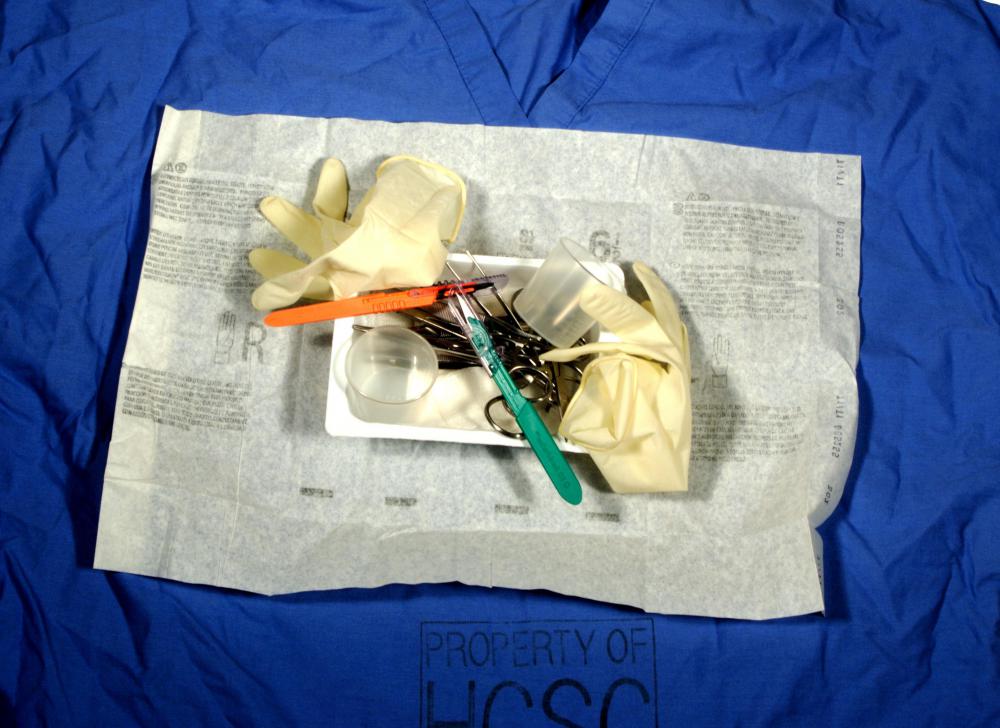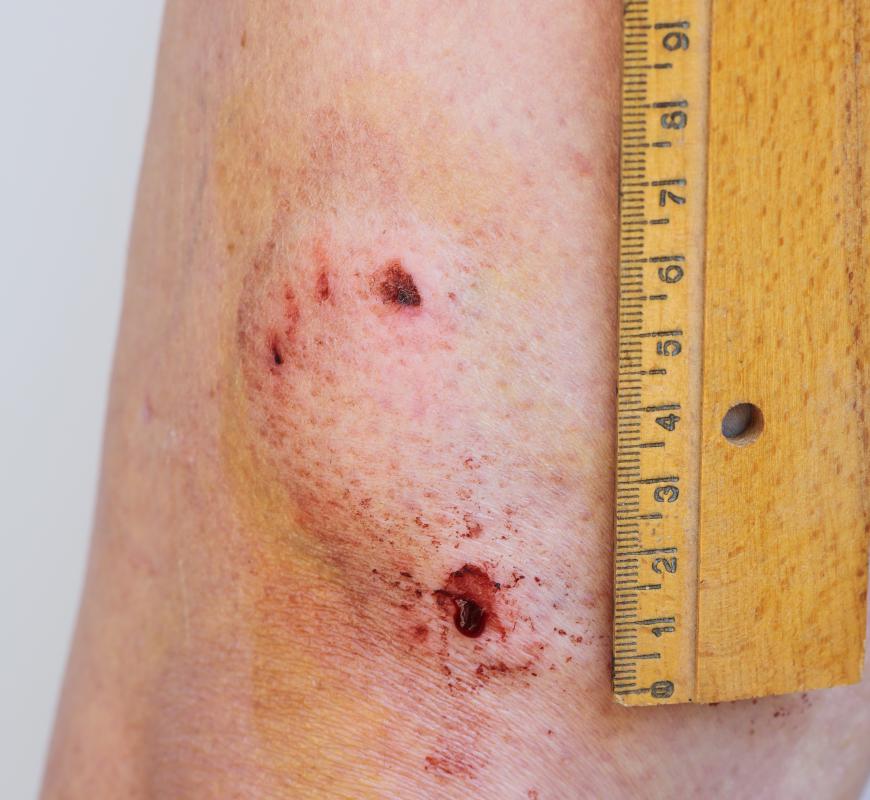At WiseGEEK, we're committed to delivering accurate, trustworthy information. Our expert-authored content is rigorously fact-checked and sourced from credible authorities. Discover how we uphold the highest standards in providing you with reliable knowledge.
What Are the Different Primary Care Procedures?
Primary care procedures are basic medical procedures that can be performed in a doctor’s office or other clinical setting by a general practitioner or nurse. Typically, they do not require the use of general anesthesia, although local numbing agents may be used. Examples include cultures to test for bacterial causes of infection, sutures for minor wounds, and injections to treat inflammation or pain. A primary care provider can also perform basic dermatological procedures, such as skin tag removal or mole biopsies.
As medical advances occur, more minor procedures are being performed by primary care physicians, which can save the patients time and money. There are numerous types of primary care procedures, but the common element in all of them is that they can safely be performed by a general practitioner in a clinical setting without significant risk to the patient’s life. If a procedure has a high potential to cause major complications, such as hemorrhaging or complete loss of consciousness, it should be done in a facility equipped to handle emergencies.

Cultures to diagnose bacterial infections are among the most common types of primary care procedures. During these procedures, a doctor or nurse uses a long cotton swab to gather cell samples from the affected area. The swab is placed in a sterile container and examined in a laboratory to determine if certain bacteria, such as streptococcus, are present. Determining the source of an infection is an important step in treating it because not all bacteria react to different antibiotics the same way.

Although major wounds typically require treatment in an emergency room, minor suturing can be performed as primary care procedures. While traditional thread stitches are still very common, many doctors are using glue-based stitches that can close a wound without requiring a repeat visit to remove the sutures. Wounds caused by animal bites, or those that bleed excessively or involve loss of part of a digit should be seen to in a hospital.

Corticosteroid injections to reduce inflammation and treat pain are often performed as primary care procedures in a doctor’s office. The injections allow the medication to be placed directly into the joint or other affected area and may prevent some of the complications that arise from taking oral steroids. Patients with arthritis or other joint diseases may require frequent injections to combat pain and stiffness, and having the procedures performed by their primary care physician can help reduce the risk of errors that can arise when medical records are kept in numerous different offices.

Certain types of dermatological procedures can be performed as primary care procedures. Skin tag removal, for example, is generally a fairly simple procedure that involves numbing the skin and using a scalpel or freezing agent to remove the tags. Mole biopsies are also common procedures that can be performed by a general practitioner. Any procedure that involves anesthesia or specialized skin care should be performed by a dermatologist.
AS FEATURED ON:
AS FEATURED ON:














Discuss this Article
Post your comments